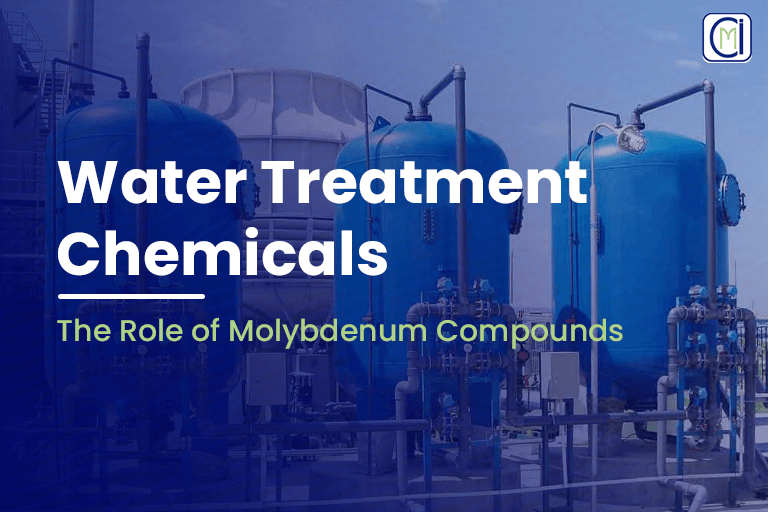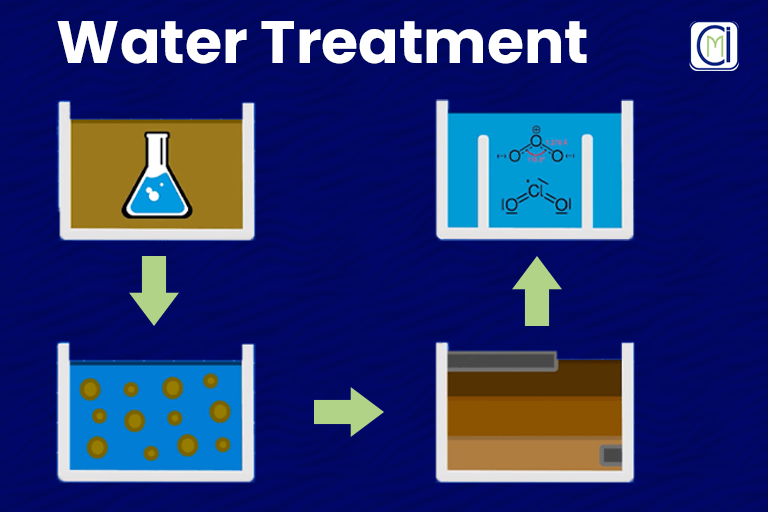
The Role of Molybdenum Compounds in Water Treatment Chemicals
Molybdenum is known as an essential trace element. It plays a vital role in the evolution process on Earth which makes it an important element for humans, animals, and plants. It is found in rocks and soil in trace quantities. Its limited availability makes it valuable.
Molybdenum compounds are widely used for different purposes. Molybdenite is the ore that occurs naturally and the chemical products made from it are called molybdates.
The kind of chemical product depends on two factors which are the base and the conditions of basification. Some of the common products are pure molybdic oxide, ammonium dimolybdate, and sodium molybdate dihydrate.
Molybdate water treatment is one of the most common and popular examples of its uses where the use of Molybdic oxide in corrosion inhibition formulations plays a vital role. Molybdic oxide and sodium molybdate are chemicals that are commonly used in water treatment facilities.

As corrosion inhibition formulation, it prevents the corrosion of aluminum and steel. It is used in water treatment products such as water heating systems and boilers where the heating of water takes place.
Besides being used for corrosion inhibition, these molybdenum compounds are also used in other processes such as temporary coatings to be used against pitting, rusting, and in aluminum anodizing processes.
Water treatment is one of the most sought after sodium molybdate uses. It is widely used in closed water systems in large commercial complexes including office buildings and hospitals. All such complexes have cooling towers.
These towers are used to expel the heat generated in the HVAC systems in these complexes. The evaporation inside the cooling towers results in the formation of scales owing to the high concentration of mineral salts.
Moreover, the water in these cooling towers is recycled number of times which develops a high probability of fungal microbial growth. Sodium Molybdate is used in water treatment to prevent corrosion in such cases.
Besides preventing corrosion, it also helps in increasing the lifecycle of cooling towers. Sodium Molybdate is used as a water treatment chemical in closed towers to inhibit corrosion of components such as low carbon steel, brass, and copper. Being environmentally safe also works in favor of the molybdenum compound.
Molybdenum compounds are also found to be very economical which gives them an upper hand in water treatment applications. Most of the compounds are safe for human use. However, the efficiency of the compound may vary with the changes in the water composition and addition of other water treatment chemicals.
Conclusion:
If you are looking for molybdenum compounds then you can connect with us. We are one of the established sodium molybdate manufacturers. Our team of experts and R&D chemists use the latest technologies to manufacture pure molybdenum compounds. We use advanced purification technologies to keep the level of impurity in molybdenum compounds to be very low and stable. We have been manufacturing the highest level molybdenum compounds that can be used in any closed water system. Contact us today to get the purest and most economic molybdenum compound.
Frequently Asked Questions:
1. What is used in water treatment?
A. Chemicals that are used are for instance sodium chloride, potassium chloride, citric acid and chlorine dioxide. Chlorine dioxide cleansing serves the removal of organic contaminants on ion exchange resins. Prior to every cleaning treatment resins should be regenerated.
2. What is sodium molybdate used for?
A. Sodium Molybdate, Dihydrate is used in the manufacturing of inorganic and organic pigments, as a corrosion inhibitor, as a bath additive for finishing metals finishing, as a reagent for alkaloids, and as an essential micronutrient for plants and animals.
3. What is molybdenum used for?
A. Most molybdenum is used to make alloys. It is used in steel alloys to increase strength, hardness, electrical conductivity and resistance to corrosion and wear. These 'moly steel' alloys are used in parts of engines. Other alloys are used in heating elements, drills and saw blades.
